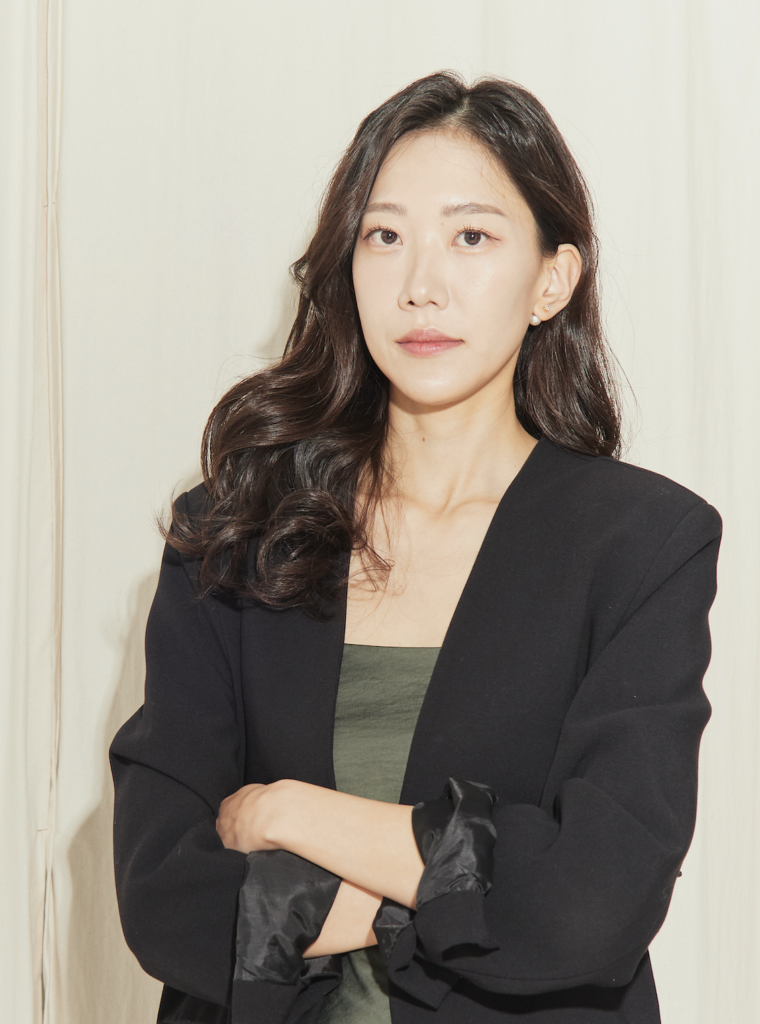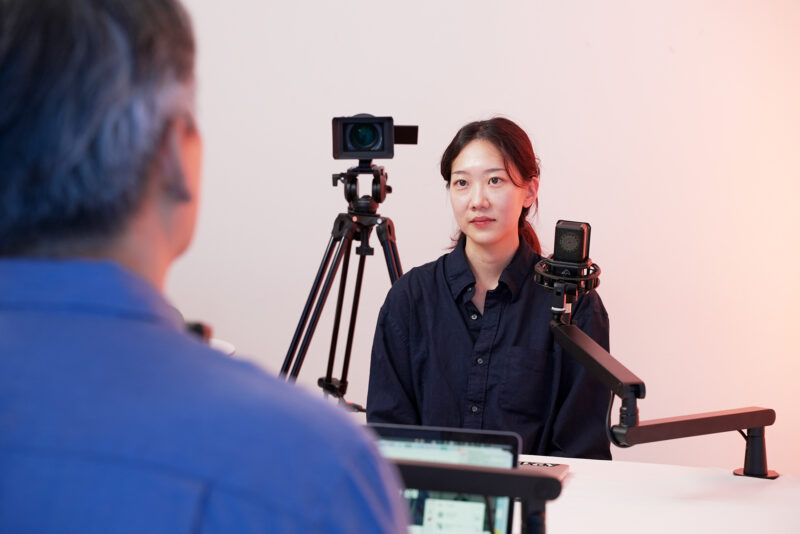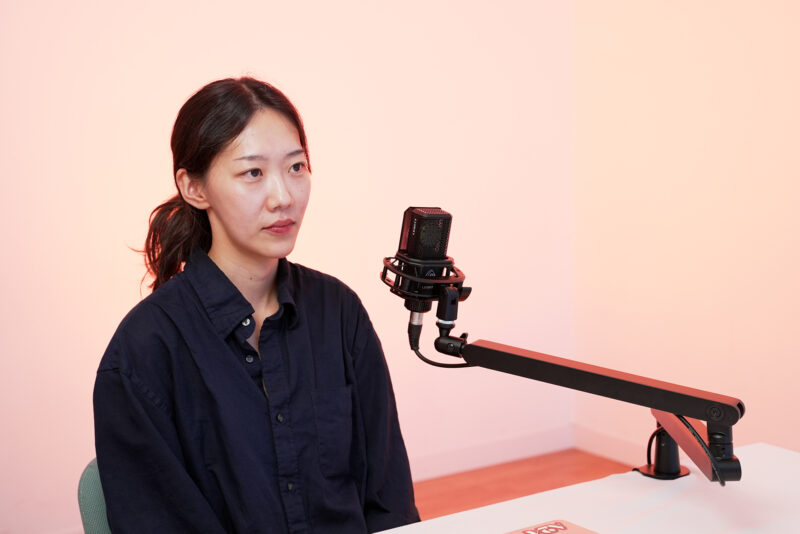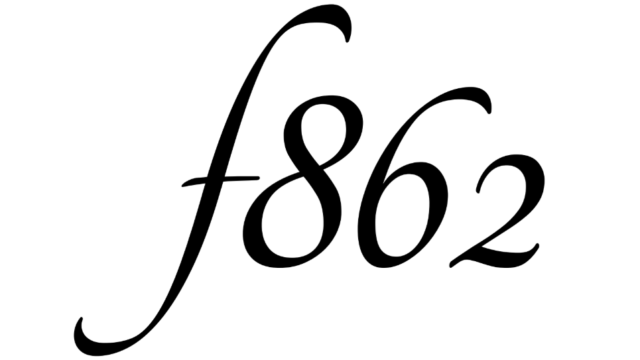Short-form content has taken over global media. In 2024, usage rates hit 70.7% across TikTok, YouTube Shorts, and Instagram Reels, pushing the global market to an estimated $40 billion. As video becomes the dominant language of digital communication, the fusion of content and AI is creating unprecedented opportunities.
Enter f862, a startup bridging the gap between film and technology. Founded in 2024 by filmmaker Choi Ji-won, the company tackles a frustrating paradox: while thousands of high-quality films go unseen after festival rejections, content creators desperately search for authentic footage they can’t find.
The insight came from Choi’s own experience in the industry. “Only 9% of festival submissions get selected. The other 91%—along with all their beautiful footage—simply disappear,” she explains. This unused content, particularly authentic Korean scenes unavailable on platforms like Getty Images or Shutterstock, represents untapped gold for marketers and creators.

f862 initially focused on selling stock images from these forgotten films. But the real breakthrough came with AiKINO, their generative AI platform that transforms how people create videos. Unlike traditional AI tools requiring complex prompts, AiKINO uses simple button selections designed by video professionals. Users can generate cinematic content in clicks, starting directly from f862’s curated film library.
The company targets short-form creators, SME marketers, and advertising agencies, aiming for $56 million USD (80 billion KRW) in market share within three years. Their revenue model splits profits with copyright holders while charging users through a credit system.
f862’s competitive edge lies in its unique team composition. CEO Choi brings connections from the Busan International Film Festival and EBS International Documentary Film Festival. The CTO, a KAIST graduate with experience at NC Soft and Krafton, handles the technical side. The COO contributes drama industry expertise from Disney+ and Studio Dragon. This blend of film authenticity and technical prowess is rare in the startup world.
The company name pays homage to A24, the studio behind “Minari”—combining ‘f’ for film with 862, the number of Choi’s first office. Since joining the Pangyo Gyeonggi Culture Creation Hub in January 2024, f862 has gained crucial support in PR, investor relations, and networking. “The Hub’s support has been invaluable for practical operations,” Choi notes, “and connecting with other startups facing similar challenges has been incredibly valuable.”

The traction is building: seed funding closed, exclusive contracts with four of Korea’s six major short film distributors, a 7,000-member director community, and the successful completion of a 28-year digital archiving project for the Busan International Film Festival.
In the generative AI race, technology alone isn’t enough—you need defensible advantages. f862 has three: copyright-cleared content at scale, deep film industry expertise, and unmatched networks. As the market explodes, this is a company investors should watch closely.
So you saw all these great films getting rejected at festivals. What made you think there was a business opportunity there?
The paradox was glaring. On one side, you have hundreds of excellent films with amazing footage that no one will ever see. On the other, marketers and creators are desperately searching for authentic content they can’t find anywhere.
Running film festivals, we saw it firsthand—out of over 1,000 submissions, only 9% make the cut. The other 91% just vanish, no matter how good they are. Meanwhile, everyone’s using Getty Images or Shutterstock, but they keep complaining about the same thing: there’s no authentic Korean content that feels natural.
But here’s the thing nobody talks about—there’s a massive disconnect between film people and tech people. Filmmakers have all this incredible footage, but they’re managing it with spreadsheets and hard drives. Tech companies want in, but they don’t understand the industry and have no connections to make it happen.
That’s where f862 comes in?

Exactly. We’re the bridge between film and tech, especially for large-scale video data and utilization. Our big goal is simple: let everyone communicate through video.
Right now we’re combining film content with AI to make video communication faster and easier. But we’re starting with film and expanding from there—the plan is to cover all kinds of video content eventually. We’re building an ecosystem that actually connects supply and demand for quality footage.
Tell us about AiKINO. How does it work?
We started by just selling film scenes as stock footage, but realized we could do way more with what we had. So earlier this year, we pivoted to let people actually create videos with our content. That’s AiKINO—it combines our stock library with generative AI so anyone can make cinematic videos in minutes.
The genius part, if I can say that, is how we solved the prompt problem. You know how with most AI tools you need to write these elaborate instructions? We threw that out. Instead, video professionals on our team designed a simple button interface. Pick your options, click a few times, and you’re making professional-looking content straight from our film library.
We’re in MVP mode now, running beta tests and refining based on user feedback.
What makes AiKINO different from everything else out there?
Look at what creators have to work with now. Pure AI like Runway or Sora? Sure, it’s easy to use, but the output looks fake. Marketers need something that actually looks real. Stock platforms have quality, but they’re clunky and limited. Want perfect footage? Hire a crew—but good luck with the budget and timeline.
AiKINO gives you the best of everything. Real footage quality, AI-level convenience, and affordable pricing. Plus, you can actually customize and extend what you create.

Who’s your target customer?
We’re positioning ourselves as “the easiest real-footage video AI to use.” That means first-time AI users on the consumer side, and small to medium businesses without video teams or big budgets for production. Long-term, we’re going after the entire AI video production and advertising market.
Short-term, we’re focused on converting people already using stock sites or AI tools. The global AI video generation market is worth about $6.6 billion, with Asia-Pacific around $700 million. We think we can capture $56 million within three years—that’s 10% of competitor users with a 10% paid conversion rate.
How do you make money?
It’s pretty straightforward. We split revenue with copyright holders—no upfront fees, just a cut when we make money. Users buy credits and spend them generating videos, with the price covering content licensing, tech fees, and our service charge. Fair for everyone.
What traction have you got so far?
We’ve hit some solid milestones. Got into government programs starting with the Preliminary Startup Package, then Youth Startup Academy. Closed our seed round in February.
On the content side, we’ve locked down exclusive deals with 4 out of 6 major Korean short film distributors. Built a 7,000-strong director community on social media. And we were just picked to run the Gyeonggi Film School Alliance, which keeps expanding our network of content creators.
For credibility, we completed a massive digital archiving project for the Busan International Film Festival—28 years of content. Now other festivals want the same thing, so we’ve got a nice pipeline building.
What’s your team’s secret weapon?
Our network and industry expertise—that’s what really sets us apart. It’s not just about building products. These connections help us acquire users and could be huge for M&A down the road.
Since we launched, we’ve had tech startups constantly reaching out wanting to tap into our film industry network. That tells you something about how valuable these relationships are.
As for the team itself: I bring festival experience from Busan International and EBS International Documentary festivals. Our CTO has a Columbia master’s and worked at NC Soft and Krafton. Our COO comes from Disney+ and Studio Dragon. We’ve got both sides covered—film authenticity and technical chops.
Give us your elevator pitch. Why should investors bet on f862?
Three reasons, and they’re big ones.
Timing. The generative AI market is exploding right now. This is the moment to grab market share before the window closes.
Legal moat. AI regulations are tightening. Companies with copyright-cleared content will win. We’ve already solved this problem—our content is clean.
Ready to scale. We’ve got unlimited content supply locked down. We just need fuel for marketing and development. Give us that, and we’ll move fast to dominate this market.

What’s the Pangyo Hub done for you?
We got in on January 1, 2024, and honestly, it’s been great. The practical stuff—press releases, interview prep, polishing our investor deck—all really useful.
But the best part? The other startups. When you’re grinding through early-stage chaos, it helps to talk with other founders going through the same thing. You get real advice, not textbook answers. I’d tell any startup to apply.

MORE FROM THE POST
- [Korean Startup Interview] Haniverse: Building an Emotional Universe Through AI Miniature Content
- The 1st Korea AI International Film Festival, accepting entries until September 6
- [Korean Startup Interview] From Text to CAD: How Herewe’s EaseAI Is Revolutionizing Product Design
- Ailive Studio Wins CES 2025 Innovation Award for AI-Powered 3D Content Creation
- Hudson AI’s Timbr Revolutionizes Creator Content with Multilingual AI Dubbing
- AI
- AiKINO
- contents
- f862
- generative AI
- Gyeonggi Content Agency
- Interview
- Korea
- Korean startup
- Pangyo Gyeonggi Culture Creation Hub



Leave a Reply